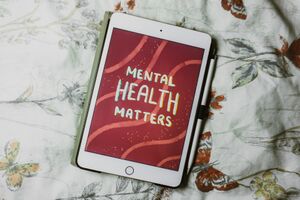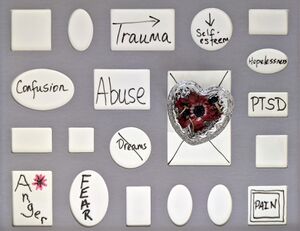Mental Health
Original Editor - User Name
Top Contributors - Lucinda hampton, Cindy John-Chu and Aminat Abolade
Introduction[edit | edit source]
Mental health has a huge impact on every aspect of people's lives. It affects behaviour, physical health, work and relationships, as well as the people around them,
[1]The Who define mental health thus:
"Mental health is the foundation for the well-being and effective functioning of individuals. It is more than the absence of a mental disorder; it is the ability to think, learn, and understand one's emotions and the reactions of others. Mental health is a state of balance, both within and with the environment. Physical, psychological, social, cultural, spiritual and other interrelated factors participate in producing this balance. There are inseparable links between mental and physical health"[2]
Having poor mental health is often confused with having a mental illness. But mental health actually refers to a person's state of mental well-being whether or not they have a psychiatric condition.[3]
Mental Illness[edit | edit source]
Mental illness refers to all of the diagnosable mental disorders. Mental disorders are characterized by abnormalities in thinking, feelings, or behaviours. Common mental disorders include anxiety, depression, substance-abuse disorder. See Mental Health - Conditions
Risk Factors[edit | edit source]
Risk factors that can increase the likelihood that a person may experience poor mental health, and include: Discrimination; Exposure to Trauma; Family History of Mental Illness; Low Income; Medical Illness; Poor Access to Health Services; Poor Self-Esteem; Poor Social Skills; Social Inequalities; Substance Use.[3]
Physiotherapy Relevance[edit | edit source]
See Mental Health, Physical Activity and Physical Therapy
References[edit | edit source]
- ↑ Australian Government Mental Health Available:https://www.health.gov.au/health-topics/mental-health-and-suicide-prevention/about-mental-health (accessed 20.4.2022)
- ↑ WHO Mental Health Available:https://www.who.int/westernpacific/health-topics/mental-health (accessed 20.4.2022)
- ↑ 3.0 3.1 Very well mind Mental health Available: https://www.verywellmind.com/what-is-mental-health-2330755(accessed 20.4.2022)








